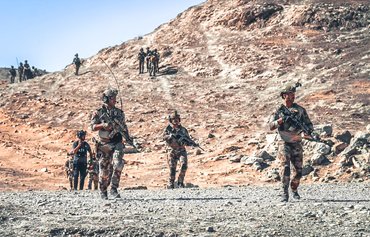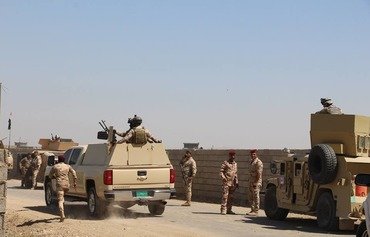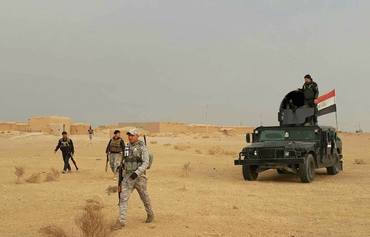Iraqi security forces on Tuesday (March 24th) launched a raid and search operation for hideouts of "Islamic State of Iraq and Syria" (ISIS) remnants in rural Diyala province.
Forces from the local police's 8th and 9th regiments, the Diyala police's emergency unit and the Model Regiment took part in the operation, with support from the police's engineering teams, dogs (K9) and communications unit.
The operation covered areas in the village of Abu Karma and the reeds surrounding the Diyala river, the Diyala police command said in a statement.
It aimed to "track down terrorist ISIS gangs and prevent them from finding safe havens in those areas," it said.
The recent security operations in Diyala and the ones that preceded it in the Hamreen hills, Makhoul, Makhmour and the Anbar desert "were aimed at curbing the threat the terrorist remnants pose to civilians' safety and security, especially in liberated cities," said Maj. Gen. Tahseen al-Khafaji, a spokesman for the Joint Operations Command.
ISIS remnants "are today, thanks to these intensive operations, weaker than ever", he told Diyaruna.
It is now "easy to discover their hideouts as a result of the intelligence services' extraordinary work and our forces' developed capabilities -- especially the air force -- to rapidly reach enemy targets and pound them immediately", he said.
Operation in Hamreen hills
On Saturday (March 21st), Iraqi F-16 fighter jets bombed a secret hideout in Diyala's Hamreen hills, al-Khafaji noted.
The Iraqi intelligence provided information about the hideout where a large number of ISIS remnants have been gathering, he said.
After receiving this information, "Iraqi technicians and engineers prepared the F-16 jets to carry out the mission", he added.
"The timing of the attack was carefully chosen in order to hit all of the enemy remnants on-site, as the intelligence information available to us indicated there were dozens of terrorists inside," al-Khafaji said.
"The operation was a great success and destroyed the hideout, killing everyone inside it," he said.
"The terrorists who died, according to our information, are not ISIS commanders but rank and file elements who were preparing to carry out attacks in a number of Diyala villages and towns, as well as in neighbouring provinces, such as Salaheddine, Kirkuk and Ninawa," he said.
The strike had a big impact on ISIS, he said, noting that it is part of an "ongoing effort to eliminate ISIS remnants hiding in mountains and deserts and in areas of dense vegetation".

![Iraqi security forces search for ISIS hideouts in the orchards of the town of Abi Saida in Diyala province on February 21st, 2019. [Photo courtesy of the Diyala Police Command]](/cnmi_di/images/2020/03/26/23226-Iraq-Diyala-ISIS-600_384.jpg)






